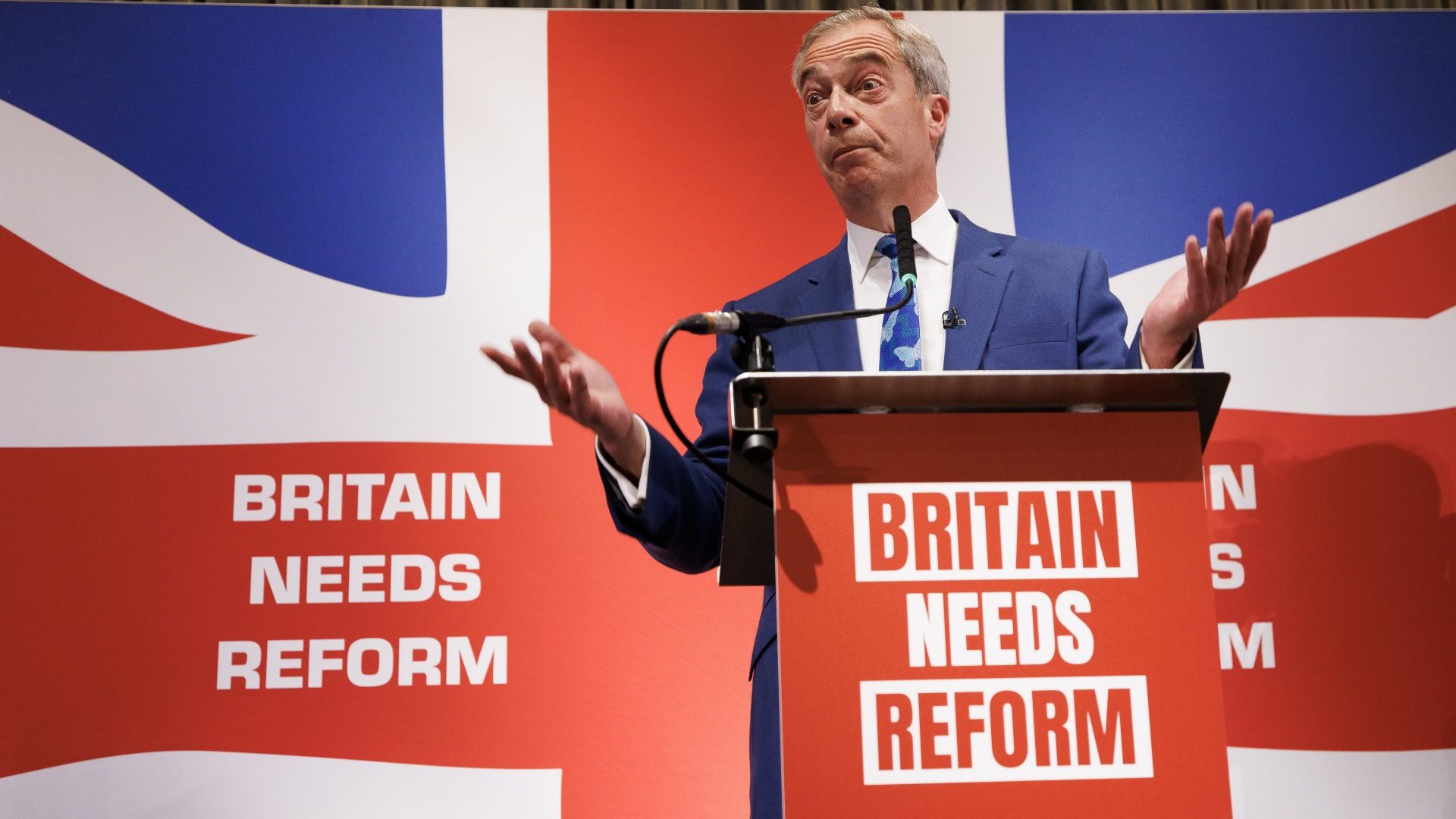So, Nigel Farage is not sitting out this election after all – not only is he running for election as Reform’s candidate in Clacton (despite recently quailing at the prospect of spending “every Friday for the next five years in Clacton”), but he has pledged to serve as Reform’s leader for the next parliament, too.
Given Reform has little in the way of conventional party structures, Farage taking over as leader has little in the way of direct influence, save for qualifying him for inclusion in various TV debates and leader interviews. There is little prospect of avoiding his presence during the next month of the election.
In the short term, Farage’s decision destroys any conceivable advantage Rishi Sunak might have secured by calling the election at a surprising time. Sunak had clearly thrown his own party for a loop with the early call of the election, but if it had at least meant that Farage didn’t helm Reform it could have paid off, by allowing the Conservatives to focus mostly on Labour, rather than fighting on two political fronts at once.
That chance is now scuppered. This is very much the absolute worst-case scenario for the Conservatives. It is still to Labour that they risk losing the overwhelming majority of their seats, meaning that they absolutely must try to stop Conservative-Labour switchers.
But even though Reform will win no more than one or two seats, if any, by splitting the vote it could indirectly cost the Conservatives dozens more seats. A low-key and subdued Reform campaign could have been largely ignored by the Tories. One led by Farage will need constant attention – meaning the Tories have to try to appeal to Reform voters on the right flank without losing moderate Conservatives on their left. That is a near-impossible task.
The worst performance of the modern Conservative party was Tony Blair’s 1997 landslide, during which the Tories held on to 165 seats. Even before Farage entered the race, most predictive models thought Sunak would likely lead the party to an even worse result than that one. With Farage in the race, the floor sinks even further – it is conceivable that the Tories could fall below 130 seats, or an outside risk of under 100.
This could be avoided if Rishi Sunak could come to some sort of deal with Farage, but the trouble for Sunak here is that there is almost nothing he could offer that would work out better for the Reform leader than a Tory collapse – indeed, that might well be Farage’s goal: a realignment of British politics with him in a much more central role.
It is common practice on the left to complain about the amount of coverage that Nigel Farage attracts, usually supported by statistics on the number of MPs or councillors his party has won. These universally miss the point: Nigel Farage is one of only two living British politicians to realign the country’s politics to his favour (Tony Blair is the other).
During the 2000s and 2010s, UKIP became a sufficient electoral challenge to the Conservatives – even coming first in one national election (to the European Parliament) – so as to force David Cameron into holding the Brexit referendum in a bid to hold his party together and counter the UKIP threat.
That delivered Farage one of the defining goals of his political life, and made Brexit the main dividing line in UK politics for years to follow. By virtue of never having been in government, Farage can avoid any personal accountability as to the fiasco that has been made of it: complaining that Brexit has been betrayed will continue to work for him as a line.
Despite having had little direct success at the ballot box, Farage has arguably been the most influential politician in Britain – with the largest effects on society – of the last several decades. This is simply not true of any politician in Liberal Democrats, and it’s certainly not true of the Greens.
Perhaps all that comes out of this latest Farage revival is a disaster for the Tories and then a fizzling out for Farage and Reform – if he fails to win Clacton and the Tory party managed to revive itself in a more conventional shape. But there is a version of events in which the 2024 general election leads to a new political era: the Conservative party has survived for a very long time, but nothing lasts forever.
Imagine a Conservative Party reduced to a rump of fewer than 100 seats, and this party then picks a new leader that isn’t from the right flank of the party. In that world, it would not be inconceivable for a handful of MPs on the right to defect – creating a parliamentary version of Reform, or similar, for Farage to lead.
Such a party, with a parliamentary presence and a vote share close to the Conservatives, could change the nature of the political right in Britain – making it uglier, more populist, more nationalistic and angrier.
Populism is always a false hope, but it flourishes when the mainstream falters. The mainstream right in the UK is on the verge of collapse: that will always be an opportunity for men like Farage. In the short-run, Farage’s candidacy is a disaster for Rishi Sunak. In the medium term, that disaster could be far more widespread.










